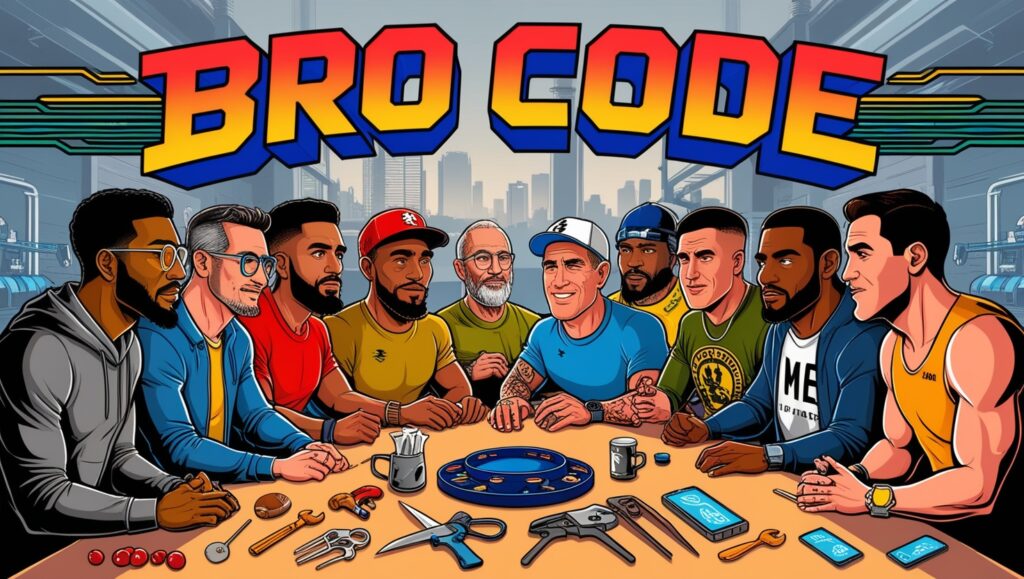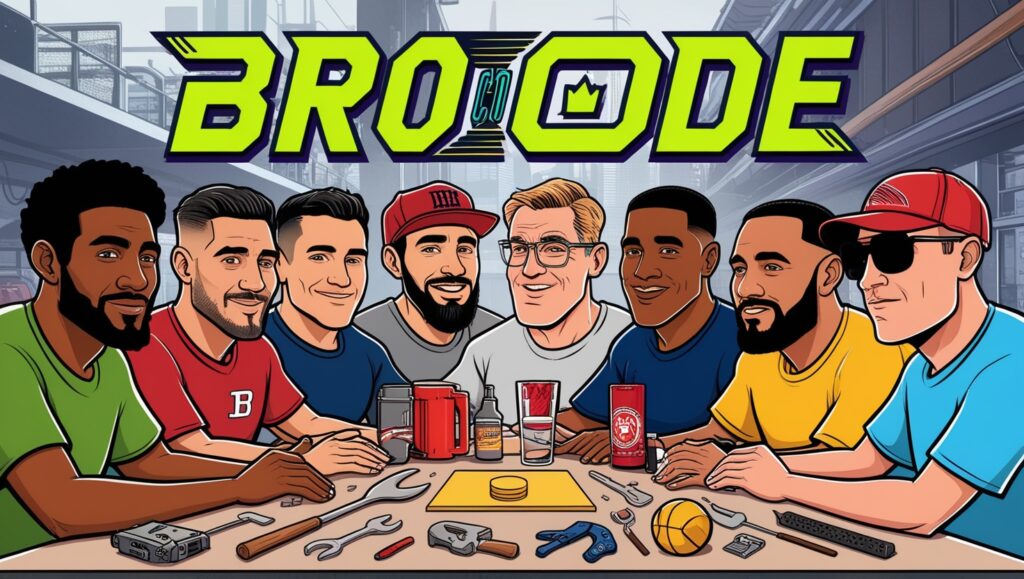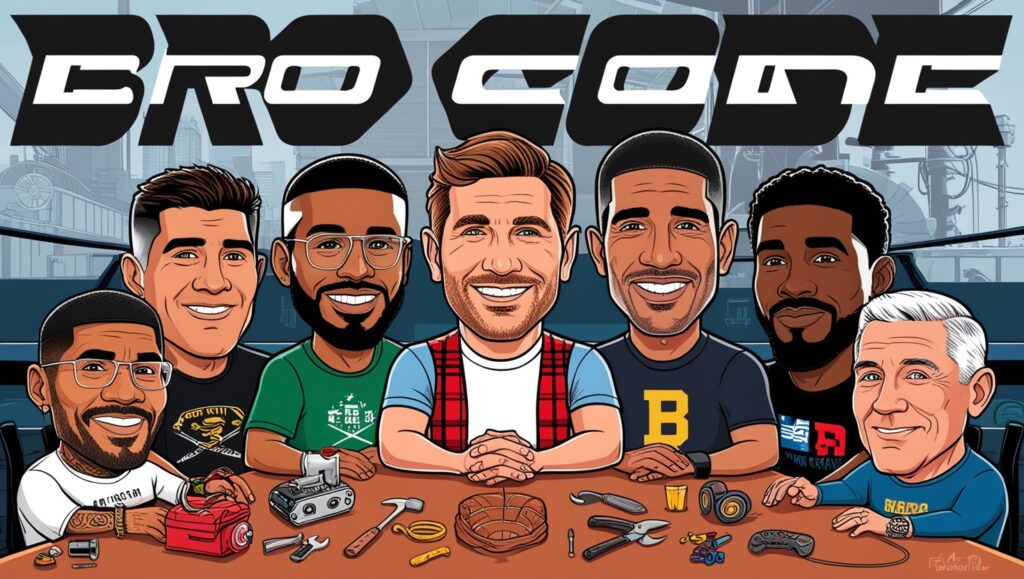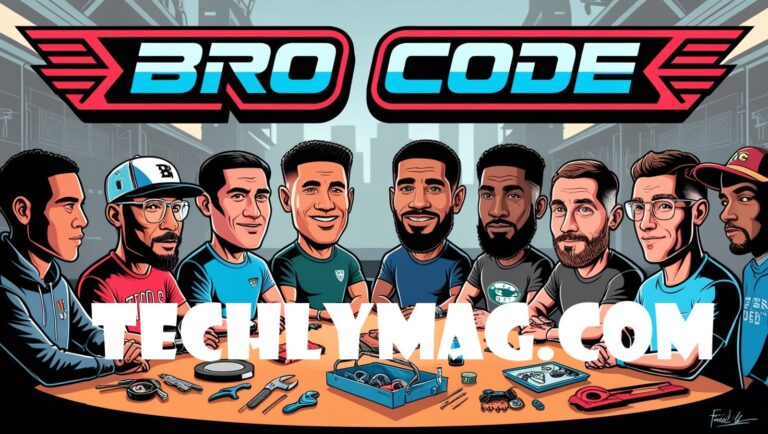The “why does bro code valorizes men” is a term that often emerges in casual conversations, especially in contexts involving male friendships, social interactions, and masculinity. While it has been popularized by various films, TV shows, and social media, the Bro Code often gets treated as an informal set of rules that guide men’s behavior toward their male friends. The essence of the Bro Code is to highlight the unspoken understanding between men, which revolves around loyalty, respect, and a certain kind of camaraderie that transcends romantic, familial, or professional relationships.
But the question arises: why does bro code valorizes men? Why does this set of informal guidelines seem to place male relationships and behaviors on a pedestal? To answer this, we must delve into social dynamics, the psychology of male bonding, historical context, and how these elements reinforce masculine identity.
In this article, we will explore the concept of the Bro Code, examine the reasons behind its valorization of men, and analyze how this influences modern masculinity.
What is the Bro Code?
Before diving into the reasons behind the valorization of why does bro code valorizes men, it’s essential to understand what the Bro Code is. Popularized by television shows like How I Met Your Mother and various internet memes, the Bro Code refers to a set of unspoken rules that govern the behavior of men toward one another. Though these “rules” are often humorous or exaggerated, they symbolize the informal yet deep bond men share in their friendships.
Common Tenets of the Bro Code:
Loyalty Above All: A bro always has another bro’s back, regardless of the situation. This rule often extends to big and small acts of loyalty, such as protecting a friend’s reputation or supporting them during difficult times.
Respect for a Bro’s Relationship: While men might joke about women, the Bro Code generally holds that a Bro does not interfere in a fellow bro’s romantic life, especially when dating the same woman.
No Secrets: Men are expected to share key aspects of their lives with their bros; openness is valued highly.
The “Wingman” Rule: A bro must support and assist his fellow bro in social situations, particularly when interacting with potential romantic partners.
While these rules may seem exaggerated, they represent an idealized version of male friendship, where men are expected to prioritize each other’s well-being and respect.

The Evolution of Male Bonding
why does bro code valorizes men, male bonding and friendship have been framed within a particular set of social expectations. From the time of ancient warrior tribes to more modern-day settings, men have been encouraged to form alliances, whether for survival, war, or other communal goals. This sense of camaraderie has evolved into the modern-day understanding of male bonding, often centered around shared interests, mutual respect, and unspoken rules like those seen in the Bro Code.
Ancient Warrior Cultures and Male Bonds
why does bro code valorizes men, such as the Spartan warriors or Viking clans, male bonding was crucial for survival. The bonds formed between men in these societies were not just about personal friendship but about strength, loyalty, and trust in combat. Putting your life in the hands of another male warrior was central to their understanding of loyalty and camaraderie. This historical precedent has influenced modern male friendships and, by extension, the Bro Code.
The Modern Relevance of the Bro Code
As societies transitioned from a warrior-driven culture to a more individualistic, consumer-driven world, the focus shifted from survival to emotional and social connection. However, the underlying theme of loyalty remained central to male friendships. The modern-day Bro Code, while largely symbolic, reflects an extension of these older social structures. Men who live by the Bro Code tend to emphasize deep, trusting relationships that allow them to navigate social, emotional, and sometimes even romantic landscapes with the support of their male friends.
Why Does the Bro Code Valorize Men?
Now that we understand what the why does bro code valorizes men is and where it comes from, we can examine why it particularly valorizes men. Several cultural, psychological, and societal factors come into play when discussing how and why the Bro Code places male bonds at the forefront.
Reinforcement of Masculine Identity
why does bro code valorizes men, as a societal construct, has been historically defined by certain traits: strength, loyalty, honor, and the ability to protect and provide. The Bro Code reinforces these aspects by positioning male friendships as sacred, based on loyalty and mutual respect. It also allows men to demonstrate masculinity by adhering to informal rules perceived as “tough” and “uncompromising.”
In a world where traditional gender roles are increasingly being questioned, the Bro Code offers men a safe, structured framework where they can assert and perform their masculinity. While humorous, this valorization of male friendships can affirm masculinity as men see it: a performance of loyalty, camaraderie, and even emotional restraint.
The Desire for Brotherhood and Social Support
why does bro code valorizes men, the Bro Code emphasizes brotherhood, essential for human well-being. Like anyone else, men seek companionship, emotional support, and peer validation. However, societal norms often discourage men from seeking emotional support from others or expressing vulnerability openly. In this context, the Bro Code provides a safe space for emotional connection that doesn’t necessarily involve being overly emotional.
By valorizing male relationships, the Bro Code implicitly offers men a refuge for emotional intimacy within the framework of masculine norms. In other words, while society may expect men to appear emotionally stoic or self-sufficient, the Bro Code allows them to be emotionally close to their friends without compromising their masculine identity.

A Rejection of Vulnerability
One of the reasons why the why does bro code valorizes men valorizes male relationships is because it creates an environment where emotional vulnerability is minimized. Traditional views of masculinity place significant pressure on men to be stoic, strong, and unemotional. The Bro Code offers an alternative: a friendship where vulnerability is expressed through loyalty and support, not necessarily through overt emotional sharing.
This can sometimes lead to the perception that men’s friendships are more transactional or practical than deeply emotional. Yet, the Bro Code ensures that the emotional bond between men is expressed indirectly and socially acceptable, aligning with traditional masculine ideals of strength and camaraderie.
The Need for a Safe Social Space
The why does bro code valorizes men friendships because it offers a refuge from the often complex social dynamics men face in the broader world, especially in relationships with women or in professional settings. A male-only space governed by a set of unwritten rules allows men to navigate these relationships in a comfortable and secure way.
This safe space allows men to be authentic and free from judgment. The informal rules of the Bro Code establish clear boundaries and expectations, ensuring that men can enjoy a supportive and predictable relationship without the fear of miscommunication or betrayal.
Cultural Influence and Popularization
The valorization of the Bro Code is also a product of its cultural representation. From sitcoms like How I Met Your Mother to YouTube channels and blogs, the Bro Code has become an iconic part of pop culture. Its humor, wit, and exaggerations have given it widespread appeal, turning it into a tongue-in-cheek framework for male friendships.

By representing male friendships in this hyper-idealized manner, popular culture helps valorize the Bro Code and positions it as a cultural norm. Men, especially younger generations, are often influenced by these media portrayals, adopting the Bro Code to navigate their relationships and social spheres.
Conclusion
The why does bro code valorizes men by creating rules that emphasize loyalty, respect, and emotional support within male friendships. It offers men a way to bond while reaffirming traditional masculine ideals of strength, independence, and camaraderie. As societal norms evolve, the Bro Code provides a sense of security and belonging to men who might feel constrained by more conventional expressions of masculinity. While it may not be universally applicable or perfect, the Bro Code is a cultural phenomenon highlighting the importance of male friendships and the need for emotional connection within a masculine context.
FAQs
Is the Bro Code only relevant to young men?
No, the Bro Code transcends age and applies to men of all ages. While it may be more prominent in younger generations, especially in media, the fundamental principles of loyalty, trust, and camaraderie are timeless.
Does the Bro Code encourage negative behaviors?
While the Bro Code can sometimes be viewed as promoting stereotypical or toxic masculinity, it primarily focuses on friendship and mutual respect. However, it can sometimes reinforce behaviors such as emotional suppression or competitiveness among men.
Can women have a “Bro Code” equivalent?
While the Bro Code is a term historically applied to male friendships, women often have similar sets of unspoken rules in their friendships based on loyalty, support, and respect. These guidelines, though, may not be framed in the same way and are not typically called a “Bro Code.”
Is the Bro Code harmful to society?
The Bro Code is not inherently harmful, but like any social construct, it can perpetuate negative stereotypes or limit emotional expression. When taken to extremes, it can discourage vulnerability or reinforce traditional gender roles that restrict the emotional well-being of men.
How does the Bro Code affect modern relationships?
The Bro Code can impact relationships by fostering strong camaraderie among men. Still, it may also complicate interactions with women, as it often encourages certain behaviors that might not align with modern relationship norms. Nonetheless, it plays a crucial role in shaping the dynamics of male friendships and their influence on broader social interactions.


